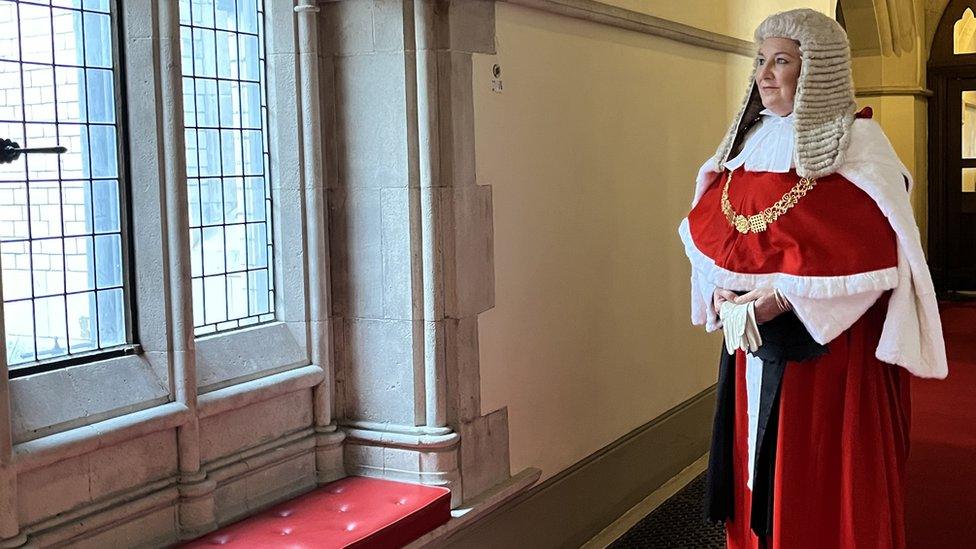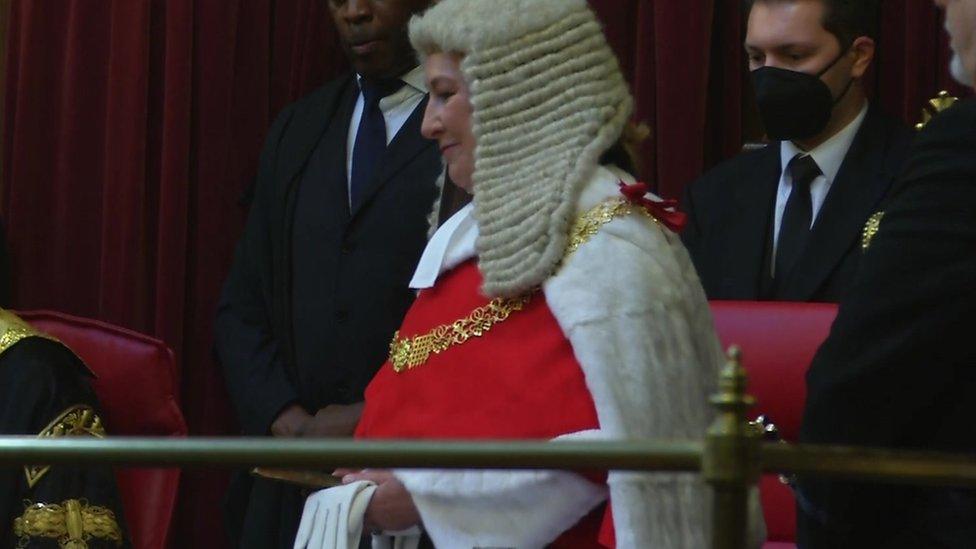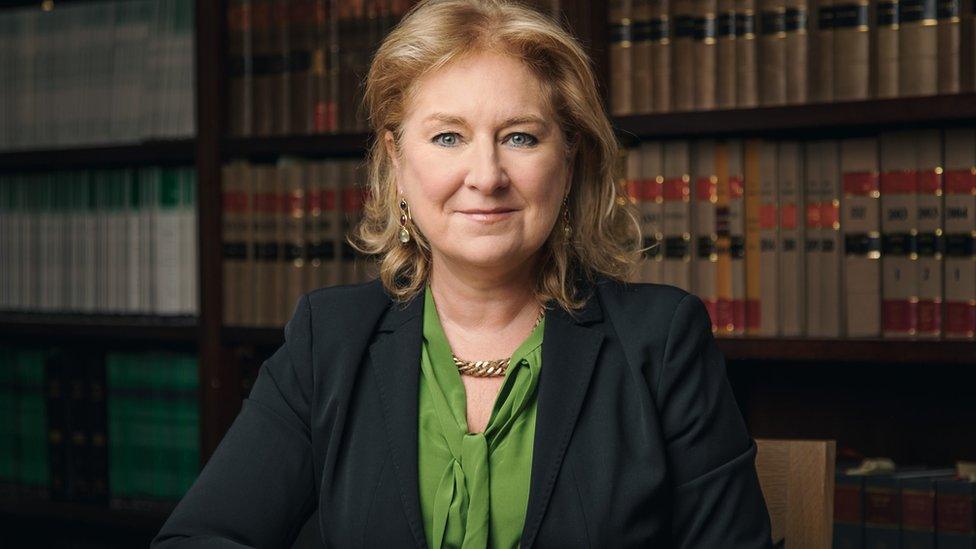Dame Sue Carr is first Lady Chief Justice, the top judge for England and Wales
- Published

Ancient role: Post dates back to 13th century
The first woman to head the judiciary in England and Wales has been sworn in.
Dame Sue Carr, 59, became the first ever Lady Chief Justice, the most senior judge, after taking the oath of office at a ceremony at the Royal Courts of Justice in London.
She is the 98th judge to hold the position - and the first woman in a history dating back almost 800 years.
Her appointment comes a century after women first became barristers and amid efforts to diversify the judiciary.
In a statement, Lady Carr - as she is now titled - said she looked forward to approaching the role with "energy, enthusiasm, and positivity".

Lady Carr's appointment was the first such ceremony to be streamed live
During the swearing-in at the Royal Courts of Justice, external, hundreds of judges and leading lawyers packed into the Chief Justice's personal courtroom to witness the historic moment as she took up the role from her retiring predecessor Lord Burnett.
He served six years in the role, which included the challenging period when the justice system needed to continue operating during the Covid lockdown.
Lady Carr spoke briefly at the beginning of the ceremony to swear an oath of office in which she confirmed that she would be known as Lady Chief Justice.
While the law technically describes the post holder as "Lord Chief Justice", other legislation allows the male title to be swapped for "Lady".
'Energy and enthusiasm'
The post comes with 400 legal duties - including ruling in some of the most important cases of the day but also overseeing the training and guidance of judges and representing the views of the whole judiciary to the government.
"It is a great privilege to assume this role," Lady Carr said in a statement.
"I do not underestimate the challenges that lie ahead, and I look forward to approaching the role with energy, enthusiasm, and positivity.
"The rule of law is a fundamental constitutional principle which underpins an open, fair and peaceful society, where citizens and businesses can prosper.
"Our judges and magistrates are its cornerstone."

Lady Carr has named the late US Supreme Court leader Ruth Bader Ginsburg among her inspirations
The appointment is made by King Charles, acting on the advice of the prime minister and the lord chancellor. But initially it is an independent selection panel that recommends who should get the position.
Surrey-born Lady Carr, the daughter of British businessman Richard Carr, a former director of Arsenal FC, became a barrister in 1987, initially specialising in commercial law.
She also spent a brief period in the courts in Australia, having won a place on a scholarship that aims to give promising young lawyers experience in working in a foreign jurisdiction., external
In 2009, she became a judge overseeing criminal trials in the Midlands. She was then quickly promoted to the High Court and later the Court of Appeal.
Her recent cases have included ruling in the appeal court that long jail sentences given to two environmental protesters, who caused chaos on the M25 motorway by scaling the Queen Elizabeth II bridge over the Thames, had been appropriate.
"The sentences [given to the protesters] should not be seen as having a chilling effect on the right to peaceful protest or to assembly," she ruled, external.
"This protest was of a wholly different nature and scale to the many non-violent protests of conscientious activists up and down the country exercising their rights to freedom of expression and assembly on a daily basis."
Mentoring others 'is success'
Most historians date the post of Lord and now Lady Chief Justice from the 13th Century, when the first version of today's courts began to be fully formed.
Since then, the role has substantially changed - most significantly 20 years ago when Parliament passed a new law clarifying that judges are independent from both it and the government.
Northern Ireland, which has a separate court system to England and Wales, was the first to appoint a Lady Chief Justice in the UK - Dame Siobhan Keegan in 2021.
One of the issues that Lady Carr will have to tackle in her new role is improving the diversity of judges serving in courts. In the past she has spoken publicly about giving up time to mentor young women.
In June, she gave an interview that appeared on her former school's website, external in which she said she was a firm believer in single sex education, adding: "It provides girls with the opportunity to thrive without falling victim to gender stereotyping."
She also said: "If I have managed to help somebody by giving them useful private advice, or have mentored someone in a way that makes a difference, then I feel successful - it gives me as much pleasure as would delivery of a great judgment or an impressive lecture."
Additional reporting by John Hand
